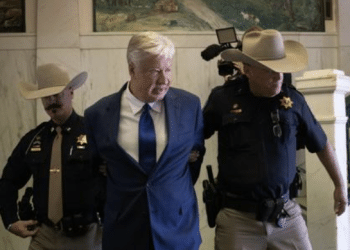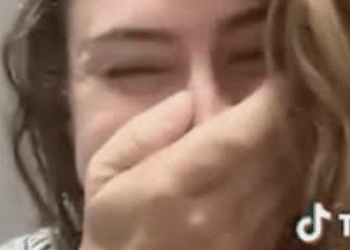October is breast cancer awareness month worldwide, a time for reflection on its past, present and future. It’s the most common cancer in the United States; about 310,720 women will be diagnosed with it in 2024 and about 42,250 will die of the disease. As an observer and practitioner of cancer medicine for nearly 60 years, I remember the days of male chauvinism and dogma in its diagnosis and treatment.
In my medical training in the 1960s and 70s, surgeons, who were almost exclusively males, often did not tell their women patients about their breast cancer diagnosis. The doctors’ attitude was like that of a haughty husband in an Anton Chekhov story, in which the husband is admonishing his wife about their married life: “You’re a woman, you don’t understand, and it takes understanding.” Doctors thought that women not only couldn’t understand cancer but also couldn’t cope with such a diagnosis. So, they only informed their husbands or male relatives. One of the most egregious travesties was done to Rachel Carson, author of Silent Spring. After her radical mastectomy in 1960, when she asked her surgeon what he had found in her breast, he lied to her. Metastatic cancer took her life four years later.
Radical mastectomy was a brutal, disfiguring operation in which the whole breast along with the chest wall muscles and many axillary lymph nodes were removed. All this was due to the erroneous belief that the surgeons could cut out all the cancers, giving the women impression that their cancer was cured. After seeing many relapses despite this draconian measure, a few brave surgeons went against the current and began the lesser surgery of modified radical mastectomy, sparing the chest muscles. They were initially vilified since the radical mastectomy was an unshakeable dogma for decades, whether the tumor was tiny or big didn’t matter. Then as the biology of cancer was more and more understood, surgery became lesser and lesser to simple mastectomy to lumpectomy only, preserving the breast.

French doctor Aicha N’Doye, (C), a breast cancer surgeon, sings to soothe a patient during anesthesia prior to surgery, in Bordeaux, southwestern France, on Dec. 11.
THIBAUD MORITZ/AFP via Getty Images
I had also seen surgeons, who, when the women asked about possibly saving the breast, said something like this: “What’s more important to you, your life or your breast?” Some doctors even took these women as vain.
Breast biopsy, too, has a poor history, and I had also witnessed it in my earlier years in cancer practice. Patients were put under general anesthesia and then the surgeon resected a small piece of the suspicious lump and sent it for pathology, while the patients were on the operating table. The pathologist did a quick study of the tissue. If cancer was found, the breast was removed. But if cancer was absent, no further surgery was done. That wasn’t the end of the story, though. The biopsied tissue was then studied under what’s called permanent section, the most reliable method of cancer diagnosis. The quick study, on the other hand, had a small number of false positive and false negative results. The permanent section was more laborious and took two to three days, and it identified the false positive and false negative results. These created tragic situations for women. The false positive patients had lost a breast for no good reason; besides, some with concomitant cardiovascular disease suffered complications from surgery and anesthesia for no reason either. Then, there was the anguish of the false negative patients, for these women had to be called back to undergo the big surgery. In reality, when the women went for biopsy, they had no way of knowing if they would wake up from anesthesia with or without a breast.
We have come a long way since then. Now, if a suspicious lump is detected during the mammogram, the radiologist takes out a tiny piece of it with the techniques of fine needle aspiration or core biopsy. This is done under local anesthesia and the patient is awake and goes home after the procedure. The biopsied material is then studied in the deliberate way, and in case of a cancerous tissue, it’s checked for estrogen, progesterone and HER-2 receptors as well as for its genetic footprints. These determine the prognosis of the cancer and the appropriate methods of treatment. Doctors have the information at hand before advising the patients about their surgical options. This is a far cry from the old days of having no choice. Currently, about 70 percent of women have a lumpectomy, preserving the breast. And contrary to the common belief, only 20 percent of the breast biopsies show cancer.
Recently, a preliminary study has shown that for select early breast cancers, surgery may not be needed at all; a short course of chemotherapy with radiation would be enough to achieve remission. But even if it’s confirmed with larger and longer studies, this newer plan of treatment may still be too much as we learn more—who knows now? History has repeatedly shown that today’s standard treatment can become obsolete tomorrow, and dogma has no place in medicine and science.
Fazlur Rahman, M.D., is an adjunct professor of biology (medical humanities & ethics) at Angelo State University, and an advisory council member of the Charles E. Cheever Jr. Center for Medical Humanities and Ethics at the University of Texas Health Science Center in San Antonio. His forthcoming book, Our Connected Lives: Caring for Cancer Patients in Rural Texas, will be published by the Texas Tech University Press in late October 2024.
The views expressed in this article are the writer’s own.





